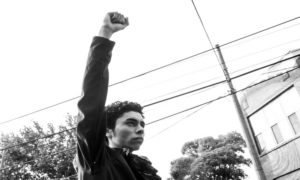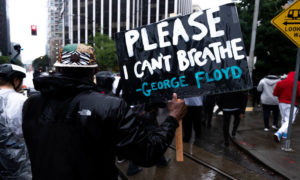It comes as no surprise that many facets of one’s livelihood are both temporarily and forever changed in the midst of the ongoing COVID-19 global pandemic. Individuals on a global scale from all walks of life are faced with a new reality that breeds new consequences, new decisions and new modalities of being. And in the midst of these phenomena, we do our best with what we have, and we look to the services and institutions with which we are affiliated to provide a necessary support and guidance in such trying times. Seattle Central College has responded to this shift in myriad ways, most recently in sparking a grassroots effort to call, acknowledge and support each actively enrolled student on campus.
In doing so, the school hopes to not only alleviate student trepidation, but also to provide resources vital to their ongoing education; in essence, Seattle Central is emphasizing their continued role in each person’s ongoing success. A reminder that, although the campus’ doors are temporarily closed, their services, guidance – and eventually classes – will remain open. Christopher Maund, Director of Admissions and Outreach Services, is leading the calling campaign initiative, which aims to commence in early April. “Our goal is to make sure that students are well taken care of, that students feel like someone cares about them,” said Maund in a recent phone conversation. “Even though there is sheltering in place, people still have their best interests at heart – that’s ultimately what we’re doing.”
Consequently, this poses a major driving force in Seattle Central’s online outreach services, which has seen a major spike in usage since Seattle Central College ordered remote operations to be in full effect through the month of April – and possibly beyond. As of Fall 2019, there are a recorded 8,714 full and part-time students, necessitating an all-hands-on-deck approach to this cause. Outreach Services has therefore asked for campus-wide support of faculty, students and employees alike to volunteer their time to assist in making these calls. “We’ve had faculty, work study students, administrators, VP’s, directors all come forward and say, ‘give me a list, I’m ready to do it,’” says Maund. “I’ve been really heartened by seeing how many different types of people have signaled their interest to make phone calls to our students…the variety really speaks to how much the Seattle Central Community cares about its student body.”
Given the myriad dynamics and situations faced by this substantial number of students, Maund and Outreach Services are still ironing out the best approach to ensure that all of those in need are accounted for. “We’re starting out with several hundred students who we’ve identified as those who need to hear from us right away…students who we’ve expected to register, but have not yet done so,” adds Maund, who aims to ensure this specific pool is accommodated by the start of Spring Quarter, which has been pushed back to April 13th as the school continues to plan and prepare in the midst of the outbreak. The phone conversations will subsequently branch out into the wider spectrum of presently enrolled students.
Financial situations are, perhaps, among the most glaring of issues facing students who depend on multiple sources of income to sustain a preferred way of life, including that of one’s educational volition. And when a glaring disconnect is formed in the midst of such a crisis, resources and options become constrained and unaccounted for. Maund noted the importance of reminding all students that specific avenues still remain available, particularly in regard to Seattle Central’s Foundation Scholarships. “We definitely want everyone to know about these possibilities. It’s part of the reason why we’re calling. This is a lot of money and we really want them to apply to these while there’s still time.”
Robert Bonaccorso, Seattle Central’s Director of Communications, also has his hands in many pots, ensuring that the school utilizes all resources possible while keeping the entire campus body informed and up to date. “We want to do the best job possible under the circumstances even as they change daily or hourly,” says Bonaccorso. “Everything we’ve done since the beginning of this outbreak has centered on the safety of students and staff, and on minimizing the impact of our decisions on their lives.” Surely no easy feat considering the multitude of potential variables stacked against students, particularly those more vulnerable to these social and economic implications. “We have struggled to find ways to support students who lack the housing, food security, or access to technology to succeed in this new reality of social distance and remote learning.” Bonaccorso continues, “We are going to keep trying, offering limited access to onsite library resources, working with partners to provide equipment and technology for students, and with our community to find emergency aid and other resources for students who need them.”
The impacts are undeniably felt by all in these times; a grand microcosm of earth’s ebbs and flows; existing attitudes, behaviors and ways of life that have been put to the test in radical fashion. And as we attempt to move forward, collectively, constructively, certain empathetic and compassionate undertakings are revealed, and the importance of our quality of life – in this case, education – is proclaimed and celebrated. “Education is an act of faith in the future,” Bonaccoro adds. “We need to nurture that faith and come together – at a safe and social distance – to get through this crisis.”
One moment, one step and one call at a time.
If you are interested in volunteering or would like to receive more information about the Seattle Central calling campaign, please contact Christopher Maund at christopher.maund@seattlecolleges.edu.






Comments are closed.